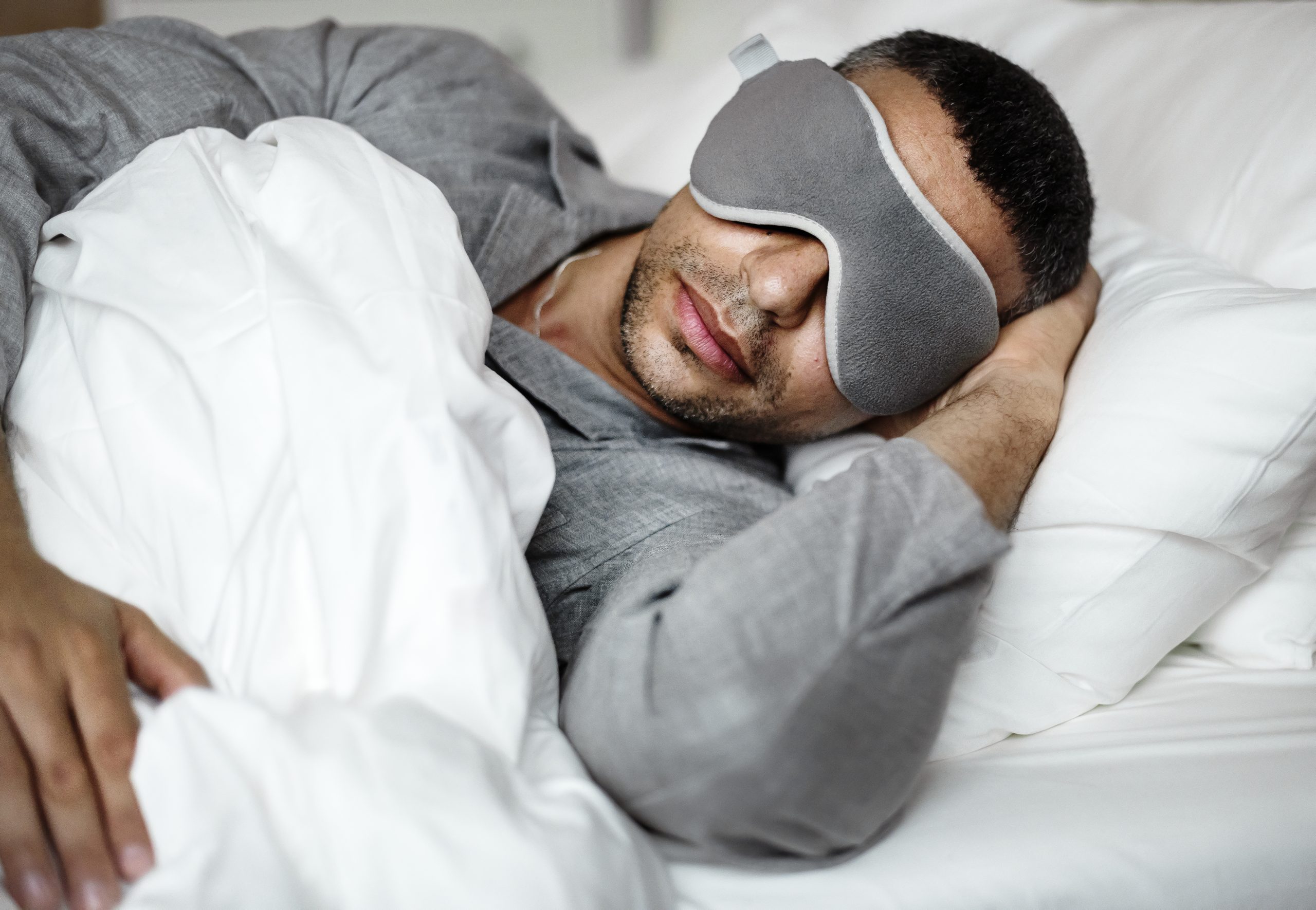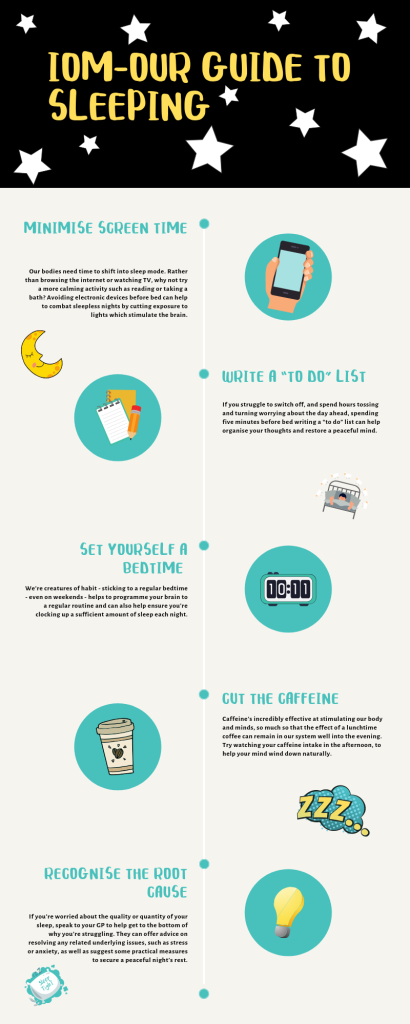
Sleep Well…
#IOM50
IOM-In-The-News


#IOM50
IOM-In-The-News
According to recent reports, UK Government Ministers intend to issue guidance on sleep. Studies have shown that we are not getting enough sleep; on average, UK adults are getting just 6.4 hours of sleep per night, which falls well short of the NHS recommended 8 hours.
Lack of sleep can leave us feeling grumpy and not working at our best. Did you know that poor sleeping patterns could also have severe and long-term consequences on your physical health?
One in three of us suffers from poor sleep. Stress, computers, and taking work home have been identified as primary culprits. Regular poor sleep put us at risk of severe medical conditions, including obesity, heart disease and diabetes – and it shortens our life expectancy.
Sleep also has beneficial qualities and can boost the immune system, lower the risk of heart disease and give a daily boost to mental well-being. When people with anxiety or depression were surveyed, to calculate their sleeping habits, it turned out that most of them slept for less than 6 hours a night.
Dr Joanne Crawford, Head of Ergonomics & Human Factors at IOM, said ”A good night’s sleep is as important as diet and exercise in maintaining a healthy body and mind. Symptoms include feeling lethargic during the day, mood swings and a lack of focus. There is a range of steps that anyone can take to improve the length and quality of our sleep. Our handy infographic illustrates some of these steps and hopefully won’t cause the reader to nod off!”
Download our infographic here for some tips to aid a good night’s sleep to feel rested and rejuvenated for the remainder of the week!
